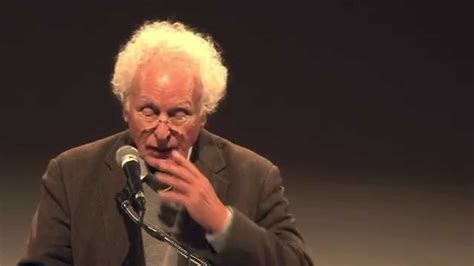A Quote by Tony Hoare
A single human brain has about a hundred million nerve cells... and a computer program that throws light on the mind/brain problem will have to incorporate the deepest insights of biologists, nerve scientists, psychologists, physiologists, linguists, social scientists, and even philosophers.
Related Quotes
When I think about discussions at the Society for Philosophy and Psychology, a group which includes not only philosophers and psychologists, but also computer scientists and linguists, it is noteworthy that one can't always tell just from the content of particular contributions from the audience, whether a given questioner is a philosopher or an empirical scientist.
With its hundred billion nerve cells, with their hundred trillion interconnections, the human brain is the most complex phenomenon in the known universe - always, of course, excepting the interaction of some six billion such brains and their owners within the socio-technological culture of our planetary ecosystem!
My hand moves because certain forces--electric, magnetic, or whatever 'nerve-force' may prove to be--are impressed on it by my brain. This nerve-force, stored in the brain, would probably be traceable, if Science were complete, to chemical forces supplied to the brain by the blood, and ultimately derived from the food I eat and the air I breathe.
Most of our brain cells are glial cells, once thought to be mere support cells, but now understood as having a critical role in brain function. Glial cells in the human brain are markedly different from glial cells in other brains, suggesting that they may be important in the evolution of brain function.
In nerve-free multicellular organisms, the relationships of the cells to each other can only be of a chemical nature. In multicellular organisms with nerve systems, the nerve cells only represent cells like any others, but they have extensions suited to the purpose which they serve, namely the nerves.
Scientists who study brain-wave activity found that the longer one watches television, the more likely the brain will slip into "alpha" level: a slow, steady brain-wave pattern in which the mind is in its most receptive mode. It is noncoggnitive mode; i.e., information can be placed into the mind directly, without viewer participation.
The task of neural science is to explain behaviour in terms of the activities of the brain. How does the brain marshall its millions of individual nerve cells to produce behaviour, and how are these cells influenced by the environment...? The last frontier of the biological sciences – their ultimate challenge – is to understand the biological basis of consciousness and the mental processes by which we perceive, act, learn, and remember.
The structure of the human brain is enormously complex. It contains about 10 billion nerve cells (neurons), which are interlinked in a vast network through 1,000 billion junctions (synapses). The whole brain can be divided into subsections, or sub-networks, which communicate with each other in a network fashion. All this results in intricate patterns of intertwined webs, networks of nesting within larger networks.



































